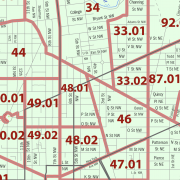The EB-5 Immigrant Investor Program is considered one of the fastest and easiest ways to immigrate to the United States. The program was created by Congress in 1990 as a way to boost the U.S. economy with foreign capital. Foreign nationals are given the opportunity to apply for a U.S. green card in exchange for a qualifying EB-5 investment in an EB-5 project. While this program presents a life-changing opportunity for foreign nationals, the complex process of completing an EB-5 investment can be stressful and intimidating. For this reason, prospective investors should find an experienced immigration attorney and the right EB-5 investment partners to help make the EB-5 process as simple and stress-free as possible.
Those who choose to make an EB5 investment can opt to invest directly in their selected EB-5 project, or they can invest through an EB-5 regional center. The regional center route is much more popular for EB-5 investors due to the relaxed job creation requirements and other advantages. Choosing to work with a regional center can help simplify much of an EB-5 project, since the investor collaborates with professionals highly familiar with the EB-5 program and its requirements.
Working with a good EB-5 regional center can be a major boon to new investors. However, it is important that potential investors nonetheless conduct thorough research to ensure they select a high-quality regional center with a solid track record and reputation. Unfortunately, there are some people in the EB-5 industry who take advantage of investors, and investors need to be able to differentiate between a reputable EB-5 project and a marketing ploy intending to pique investor interest.
What “Preapproved” Actually Means
One of the reasons many investors choose to make their EB-5 investment through a regional center is for easier access to preapproved projects. While there are certainly some projects that are preapproved by United States Citizenship and Immigration Services (USCIS), it is important that prospective investors understand exactly what “preapproved” means.
When an investor hears that a project is preapproved, they may think USCIS will comparatively favor it over others. However, this is not the case—every project must be presented in the proper format, is subject to the same requirements, and goes through the same adjudication process. When a project is preapproved, it simply means that the regional center has secured approval through a process involving USCIS assessing a preliminary business plan and granting I-924 exemplar status.
If a regional center markets its I-924 exemplar status to potential investors, it does not necessarily mean that it is being dishonest. As long as the regional center communicates to the investor what preapproved means, as well as what I-924 exemplar status is, it may still be a reputable EB-5 regional center. However, if it fails to explain what I-924 exemplar status actually means, it is probably best to consider other options for EB5 investment.
What Is I-924 Exemplar Status and “Deference”?
USCIS began granting I-924 exemplar status in December 2009 as a way to save agency time and resources. If an EB-5 project submission included a business plan with its I-924 petition and USCIS deemed that business plan sufficient in meeting the EB-5 program requirements, then the project was granted I-924 exemplar status. USCIS provides deference to future I-526 submissions that use the same business plan as an exemplar EB-5 project.
Exemplar status is beneficial to investors because when an EB-5 investor submits their I-526 petition, USCIS does not have to evaluate the business plan portion of their petition. Instead, the adjudicator can spend their time evaluating the other eligibility requirements, such as the investor’s sources of EB-5 investment funds.
It is important to note that deference does not protect against I-526 denial, as an I-526 petition could still fail to meet requirements separate from the business plan. Furthermore, if the I-924 petition was filed years prior, it is possible that the approved business plan has become irrelevant or invalid, meaning that the deference no longer applies to new I-526 petitions.
Potential Changes Needed After I-924 Approval
If an I-924 exemplar is old, that does not necessarily mean the project should not be considered. Instead, an investor should be sure to question the regional center about the validity of the preapproved business plan. The regional center should be able to clearly communicate whether the project meets the most up-to-date compliance guidelines and what updates and changes need to take place before the investor files their I-525 petition.
The most common parts of a business plan that an EB-5 investor might need to change are economic and financial projections as well as project feasibility studies. Because EB-5 policies and regulations are constantly changing, it can be difficult for a preapproved project to guarantee compliance. For example, some of the regulations of the EB-5 program changed in November 2019 with the enactment of the Modernization Rule, which means that investors in any projects preapproved earlier than November 2019 will likely need to make changes to their business plan. If a regional center attempts to guarantee approval or a speedy process on the grounds of outdated I-924 exemplar status, it would be best for the investor to consider other EB-5 investment options.
Transparency About EB-5 Project Risks
It’s important that prospective investors and their immigration attorney conduct due diligence and evaluate the potential risks of their chosen EB-5 project. EB-5 investors not only assume financial risk but also immigration risk, and therefore, they should carefully research any prospective project and ensure that they are comfortable with their choice so they do not put their future immigration goals in jeopardy. The project partners should also openly communicate potential risks to the investor. If the project partners are not open and transparent, the EB-5 investment is even riskier for the investor.
When a project’s partners are open and honest about the project and its potential risks, the EB-5 process can be much simpler and less stressful for the EB-5 investor. EB5 Affiliate Network (EB5AN) is a great example of transparent EB-5 partners. The network runs 14 regional centers that operate in over 20 states and boasts a 100% approval rate with USCIS.
What EB5 Affiliate Network Offers
EB5AN offers many free resources for foreign nationals planning an EB-5 investment. The network provides free tools that help assess targeted employment area (TEA) status EB-5 project risks, in addition to publishing the most up-to-date industry news. The EB5AN team is experienced in the EB-5 industry and can offer guidance and assistance to anyone completing the life-changing EB-5 investment journey.







